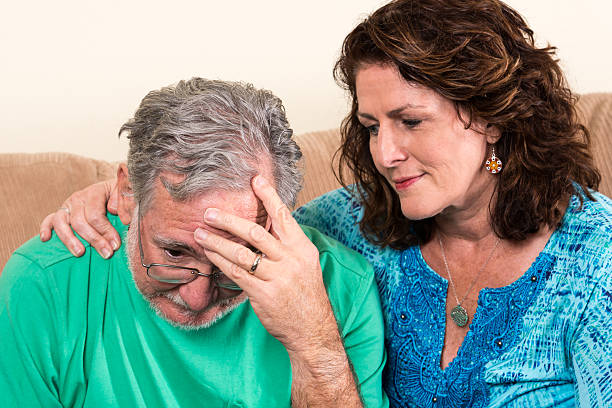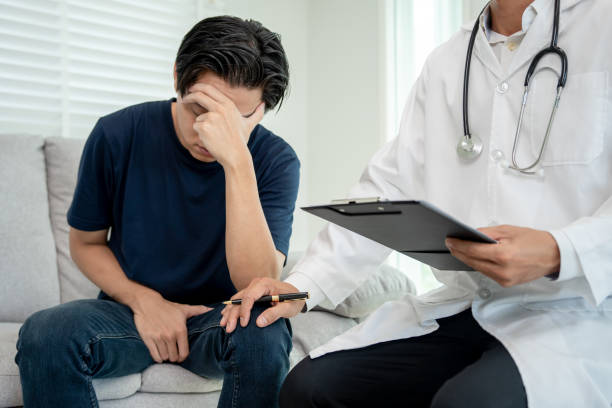Erectile dysfunction (ED) is a condition that impacts millions of men across the globe. While the physical causes of ED are well-documented, the emotional effects can be just as profound. Many men dealing with ED experience a significant decline in self-confidence, which often leads to feelings of anxiety, stress, and loneliness. If you’re facing these struggles, it’s crucial to understand that you’re not alone in this journey. Rebuilding your confidence after dealing with erectile dysfunction is not only possible, but it’s also an important step toward reclaiming your life and relationships.
In this guide, we will dive into the various aspects of Erectile Dysfunction, examine how it can influence your self-esteem, and provide actionable strategies to help rebuild your confidence. Whether you’re at the beginning of your journey or have been managing Erectile Dysfunction for a while, these tips are designed to empower you and encourage a more positive outlook on your future. By following these steps, you can take charge of your emotional well-being and move forward with renewed strength and self-assurance.

Understanding Erectile Dysfunction and Its Emotional Impact
Before exploring confidence-building strategies, it’s important to first understand what erectile dysfunction (ED) is and how it can impact your emotional health. Recognizing the effects of ED on both your physical and mental well-being is key to addressing the condition holistically. Understanding how ED can influence your self-esteem and overall mindset is the first step toward taking control of the situation and finding effective ways to rebuild your confidence.
What Is Erectile Dysfunction?
Erectile dysfunction (ED) is the inability to achieve or sustain an erection that is firm enough for sexual intercourse. ED can be caused by various physical factors, such as:
- Heart disease
- Diabetes
- Obesity
- Hormonal imbalances
- Neurological conditions
In addition to physical causes, ED can also result from psychological issues, including stress, anxiety, depression, and relationship difficulties. Identifying the underlying cause of your ED is an essential first step in addressing it. Whether it’s a physical or emotional factor, understanding the root cause will help you choose the most effective treatment options and take control of your health and well-being.
The Emotional Toll of ED
The emotional impact of erectile dysfunction (ED) can be significant. Many men experience feelings of embarrassment, shame, or frustration due to their inability to perform sexually. These emotions can lead to a drop in self-esteem, making it harder to engage in intimate relationships. Over time, this sense of inadequacy can contribute to anxiety and depression, creating a negative cycle that can make the condition even more challenging.
It’s essential to acknowledge and accept these emotions, as it’s completely natural to feel this way. Remember, your self-worth is not determined by your ability to perform sexually. You deserve love, respect, and intimacy, no matter what challenges you may face. Recognizing your value beyond sexual performance is an important step in rebuilding your confidence and moving forward with a more positive outlook.

Rebuilding Confidence After Erectile Dysfunction
Now that we’ve discussed the emotional impact of erectile dysfunction (ED), it’s time to focus on how to rebuild your confidence. Taking proactive steps to improve your self-esteem and mental well-being is crucial. Here are several practical strategies you can implement to regain your confidence, feel better about yourself, and enhance your emotional health. These steps are designed to help you take control of your situation and move toward a more positive and fulfilling life.
1. Seek Medical Help and Professional Support
The first step in overcoming Erectile Dysfunction is addressing the physical or psychological causes. Consult with a healthcare provider to determine the underlying reason for your condition. Your doctor may recommend treatments such as medication, therapy, or lifestyle changes.
- Medications: PDE5 inhibitors like Viagra and Cialis can be effective in treating ED.
- Therapy: Cognitive behavioral therapy (CBT) or counseling can help address anxiety or relationship issues contributing to ED.
- Lifestyle changes: Adopting a healthy diet, exercising regularly, and reducing stress can improve both your physical and mental health.
Tip: Don’t hesitate to discuss your concerns openly with your doctor. The more you share, the better they can help you.
2. Focus on Communication with Your Partner
ED can affect your relationship, especially if there is a lack of communication. It’s important to talk openly with your partner about what you’re experiencing. This creates a supportive environment where both of you can work together to address the issue.
- Be honest about your feelings and frustrations.
- Reassure your partner that the issue is not related to their attractiveness or the quality of the relationship.
- Work together to explore alternative ways to experience intimacy, such as non-sexual affection or focusing on mutual pleasure rather than performance.
3. Practice Self-Compassion
Rebuilding confidence requires you to be kind to yourself. It’s easy to fall into negative self-talk when dealing with Erectile Dysfunction, but practicing self-compassion can help you develop a more positive outlook.
- Challenge negative thoughts: When you catch yourself thinking negatively about your performance, challenge those thoughts. Remind yourself that ED is a medical condition and not a reflection of your worth.
- Celebrate small victories: Focus on the progress you’re making, no matter how small. Whether it’s improved communication with your partner or better management of stress, celebrate the positive changes.
- Practice mindfulness: Mindfulness meditation can help you manage stress and anxiety. By staying present in the moment, you can reduce the mental pressure that often accompanies ED.
4. Improve Your Physical Health
Your physical health plays a major role in your self-confidence. When you feel good about your body, you’re more likely to feel confident in other areas of your life as well.
- Exercise regularly: Physical activity can improve circulation, boost energy levels, and reduce stress. Aim for at least 30 minutes of moderate exercise most days of the week.
- Eat a balanced diet: A healthy diet rich in fruits, vegetables, lean proteins, and whole grains can improve your overall health and help regulate blood sugar levels, which can positively impact ED.
- Get enough sleep: Poor sleep can exacerbate stress and negatively affect your confidence. Aim for 7-9 hours of quality sleep each night.
5. Focus on Intimacy, Not Just Sexual Performance
It’s easy to equate intimacy with sexual performance, but it’s important to broaden your definition of intimacy. Focusing on connection, emotional bonding, and affection can help you feel closer to your partner and reduce performance anxiety.
- Explore non-sexual intimacy: Try cuddling, holding hands, or engaging in deep conversation to strengthen your emotional connection.
- Focus on pleasure, not performance: Rather than worrying about achieving an erection, shift your focus to mutual enjoyment and pleasure.
6. Set Realistic Expectations
It’s important to recognize that rebuilding confidence is a gradual process. Erectile Dysfunction may not resolve overnight, but with the right treatment and mindset, you can improve your confidence and quality of life.
- Be patient with yourself: Allow yourself time to heal, both physically and emotionally. Celebrate your progress, no matter how small.
- Set realistic goals: Work with your doctor and partner to set achievable goals for your sexual health and confidence. Gradual improvements are more sustainable than aiming for instant perfection.

When to Seek Professional Help
While many men are able to rebuild their confidence after experiencing erectile dysfunction (ED), some may find that the issue persists despite their best efforts. If you’re struggling to overcome the emotional effects of ED, it might be time to consider seeking professional help.
- Therapists and counselors: A mental health professional can assist you in addressing any emotional or psychological issues related to ED, such as anxiety, depression, or low self-esteem. Working with a therapist can help you process these feelings and build healthier emotional coping strategies.
- Sex therapists: These specialists are trained to help both you and your partner navigate intimacy challenges, improve communication, and work on enhancing your sexual relationship. They can provide guidance on addressing the emotional and physical aspects of ED together.
- Support groups: Joining a support group for men dealing with ED can be a valuable way to connect with others who understand what you’re going through. Sharing experiences, advice, and encouragement can help you feel less isolated and more empowered as you work through the challenges.
Seeking help from these professionals and support networks can offer you the tools and guidance needed to move forward and continue rebuilding your confidence.
Conclusion: Reclaim Your Confidence and Embrace Your Future
Rebuilding confidence after dealing with erectile dysfunction (ED) is entirely possible, but it takes time, patience, and consistent effort. By addressing the physical, emotional, and relational aspects of ED, you can restore your sense of self-worth and improve your relationships. It’s important to remember that ED is just one part of your life and doesn’t define who you are as an individual.
Start by seeking medical advice, being open with your partner about your feelings, and focusing on enhancing both your physical and emotional health. With the right approach, you can rebuild your confidence and look forward to a more fulfilling and intimate future.
If you’re ready to take the next step, talk to your doctor about treatment options and consider new ways to strengthen your connection with your partner. Your journey toward rebuilding confidence starts now, and with each step, you’ll feel more empowered and hopeful about your future.

